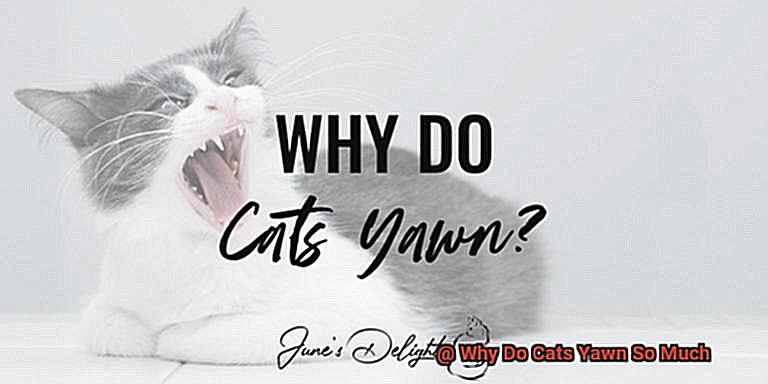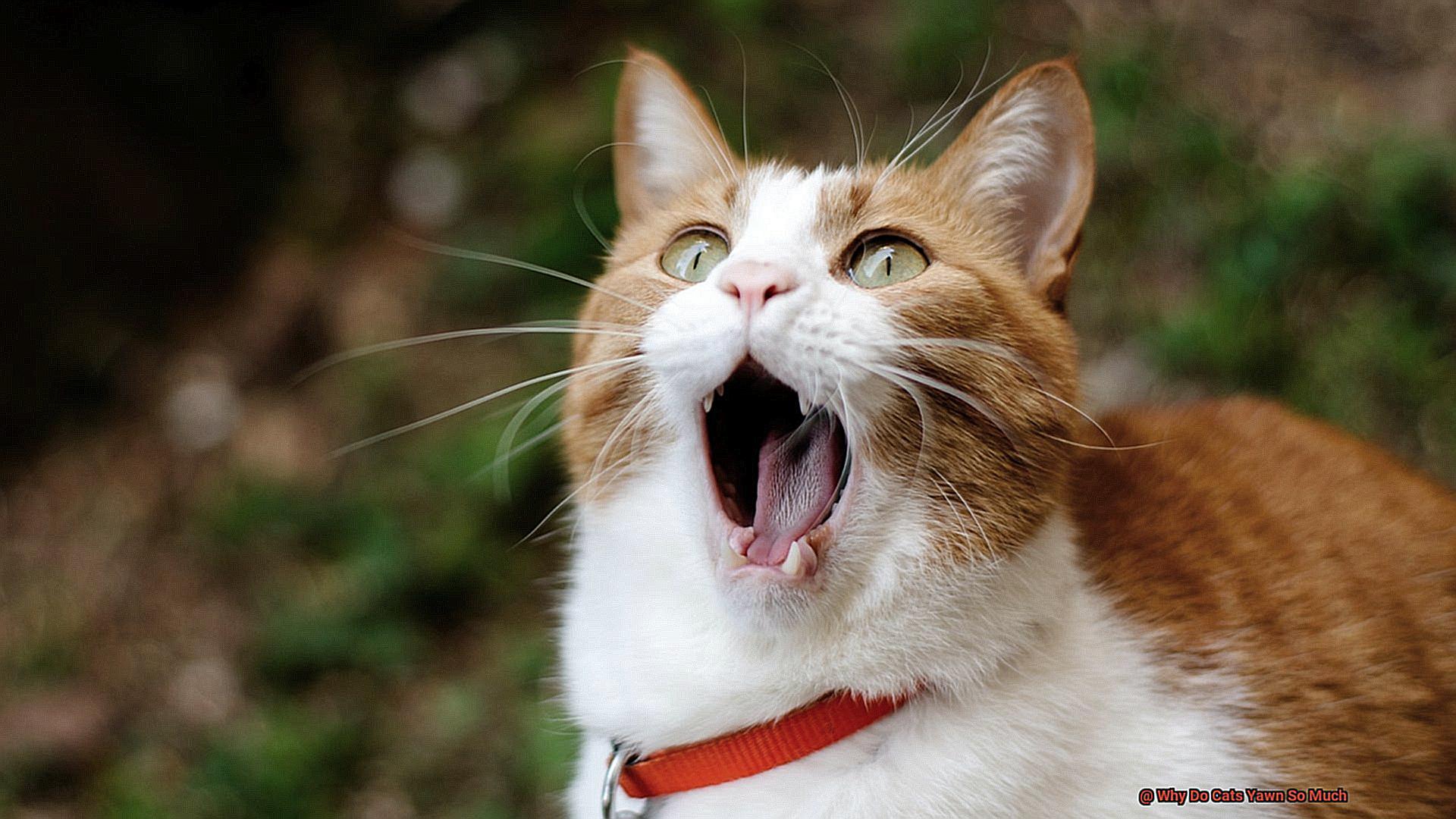Do you ever wonder why your cat seems to yawn so much? If so, you’re not alone. Many pet owners are curious about why cats yawn more than other animals.
The truth is, cats do yawn quite a bit, and there are some reasons why they do it. In this blog post, we’ll explore the various causes of frequent feline yawning and what it means for your furry friend’s wellbeing. Plus, we’ll look at some warning signs that might indicate if your cat is stressed or tired.
We’ll also discuss how to keep your cat relaxed and comfortable in order to reduce the need for constant yawning. By the end of this post, you’ll have a better understanding of why cats yawn so often and what it does for their overall health. So get ready to learn all about cats and their big yawns!
Is It Normal For Cats To Yawn A Lot?
Do you ever wonder why your cat is always yawning? Well, it turns out that cats yawn a lot! This isn’t something to be concerned about—it’s actually a sign of contentment and relaxation.
Yawning is your cat’s way of letting you know that they feel safe and secure in their environment. It could also be an indication of boredom or restlessness.
On the other hand, cats may also yawn if they are feeling stressed or anxious due to changes in the environment, such as loud noises or unfamiliar people entering the home.
Reasons For Excessive Yawning In Cats
Are you noticing your cat yawning more than usual? If so, you may be wondering what could be causing it. Excessive yawning in cats can have a variety of causes, from stress and boredom to physical pain or illness.
Stress and boredom can both lead to excessive yawning in cats. Changes in their environment, a lack of mental stimulation, or even physical pain can all contribute to anxiety and exhaustion in cats, resulting in more frequent yawns.
Cats may also yawn when they are feeling tired or sleepy. If your cat is yawning more than normal, it could indicate that they need more rest. Make sure your cat has plenty of cozy places to sleep and relax throughout the day.
Finally, excessive yawning can also be a sign of physical discomfort or illness in cats. If you notice any changes in your cat’s behavior, including excessive yawning, it’s important to bring them to the vet for an examination.
Excessive yawning can be worrying for pet owners, but knowing the reasons behind it will help you provide the right care for your cat and keep them healthy and happy.
What Does It Mean When A Cat Stretches And Yawns?
This is a common behavior for cats, and it usually means they are feeling content and relaxed. When your feline companion has just woken up from a nap or after playing, they may stretch and yawn to signify their comfort. It’s also an effective way for cats to let go of any stress or anxiety that they may be experiencing.
However, if your cat is frequently stretching and yawning, it could be a sign of boredom or even stress. Be sure to pay attention to your cat’s body language and look out for other signs that something might be wrong.
Stretching and yawning are great indicators that your cat is feeling safe and secure in their home environment.
Will My Cat Yawn If I Yawn?
It’s not just a coincidence – cats are known to mimic the behavior of their owners, and that includes yawning.
Cats are incredibly in tune with their environment, and they observe their owners closely. Studies have found that cats can even copy their owners’ facial expressions, so it’s no surprise that they can mimic a yawn too.
Yawning is an important form of social communication for cats, so when your cat sees you yawning, it may be trying to communicate with you or show that it feels safe in its surroundings.
Do Cats Yawn When Stressed?
The answer is yes! Yawning is a way for cats to release tension and express their feelings, particularly when they’re feeling overwhelmed. Cats may yawn when they are in an uncomfortable situation, such as being handled or picked up. It can also be a sign of boredom or frustration.

Additionally, cats can yawn when exposed to loud noises or unfamiliar people and animals.
So if you notice your cat yawning more than usual, it could be a sign that something is stressing them out. Pay attention to your cat’s behavior.
Do Cats Yawn When They’re Tired?
The answer is a resounding yes!

Yawning helps cats relax and feel more comfortable. When cats are exhausted, they may stretch, meow, and then yawn. This is because yawning helps them take in more oxygen, which can help them feel more alert and energized.
Yawning can also be a sign that the cat is feeling stressed or anxious in addition to being tired.
If your cat is yawning frequently, it’s essential to observe its behavior and environment closely for any potential causes of distress that may need addressing.
How To Tell If Your Cat Is Tired Or Stressed By Their Yawning
Cats are incredibly adaptable creatures, but it can be difficult to tell when they are feeling tired or stressed. One of the most obvious signs that your cat is experiencing either emotion is through their yawning.
Knowing how to tell if your cat is tired or stressed by their yawning will help you provide them with the care and assistance they need.
Signs That a Cat Is Stressed
When cats are stressed, they may exhibit a variety of physical and behavioral traits. These may include rapid and shallow breathing, wide eyes, heavy grooming, and frequent yawning. Pay close attention to your cat’s body language for any signs that they may be feeling overwhelmed or anxious.
Signs That a Cat is Tired
Cats can also show signs of fatigue through their behavior. These include heavy eyelids, frequent yawning, a lack of energy, and sluggish movements. If you notice any of these along with frequent yawning in your cat, it could indicate that they are tired or hungry.
What To Do If Your Cat Is Yawning Excessively
If you notice your cat exhibiting any of these signs, along with excessive and frequent yawning, it may be a good idea to take them to the vet to rule out any underlying medical issues.
Additionally, make sure to give them plenty of rest and relaxation in order to help them feel better. This includes providing them with comfortable bedding in a quiet space away from loud noises or strangers/pets.
How To Help Reduce Stress And Tiredness In Your Cat
Cats are wonderful companions, but they can become stressed and tired if not taken care of properly. To ensure your cat is healthy and happy, it’s important to help them reduce their stress and exhaustion. Here are five easy ways to do just that.
Exercise
Exercise is an essential part of a cat’s life, just as it is for humans. Regular exercise will help your cat stay fit, healthy, and reduce their stress levels. Try encouraging them to run around the house or take them on a leisurely walk with a leash. Playing with toys or interactive games can also be a great way to get them motivated.
A balanced diet
A balanced diet is key for cats as well. Make sure your cat has access to all the essential vitamins and minerals they require for optimal health and energy levels. If you’re particularly anxious or overwhelmed, you may want to try including calming foods such as catnip or valerian root in their diet.
Comfort
Comfort plays a major role in helping cats reduce anxiety. Provide your cat with plenty of pillows or blankets in different locations throughout the house so they can sleep wherever they please. Pheromone diffusers or sprays can also help create a calming atmosphere in your cat’s home environment.
Spend Time With Your Cat
And lastly, make sure you spend quality time with your cat regularly so they can get used to being around people and other animals in the house. This will help them feel less stressed when left alone during the day or night while you sleep.
Conclusion
Cats are mysterious creatures, and their frequent yawning can leave us scratching our heads. But now we know that cats may yawn for a variety of reasons – from happiness to releasing tension.
Since this is one way cats communicate with us, it’s important to pay attention to their body language and look out for warning signs that something might be wrong.
We’ve also learned how to tell if your kitty is tired or ill from their yawning, as well as how to reduce anxiety and exhaustion in cats.
To keep them healthy and content, regular exercise, a balanced diet, security, and quality time with humans are all essential.

